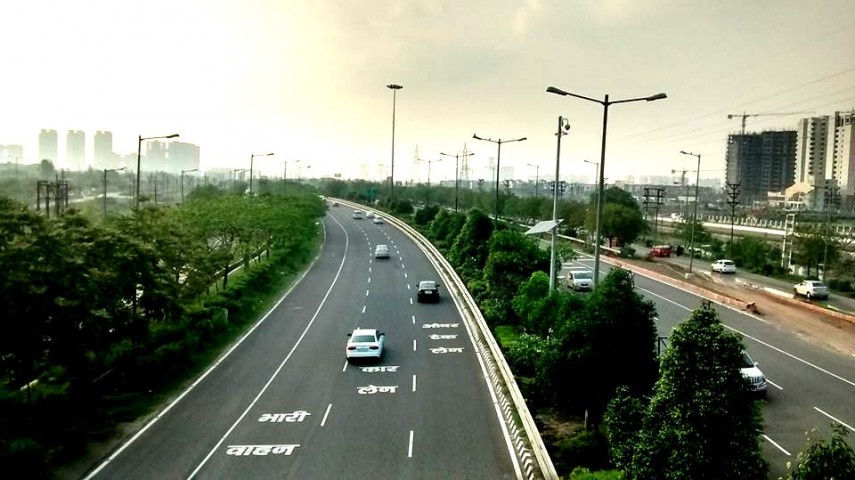Infrastructure Projects That Made Headlines In 2016

India is gradually trending towards attaining global status in terms of its transport network and civic infrastructure. The central government is giving clear indications with its initiatives to attract public investments in projects on railways, ports and highways. Given the technological expertise the country possesses, there is no wonder when we see roads being built even on bumpy terrains. The proposed longest road tunnel, costing Rs 3,720 crore, on Srinagar-Jammu National Highway is proof enough. Besides this, the year 2016 saw some promising mega-projects in the infrastructure segment.
PropGuide lists out India's mega infrastructural projects which were launched in 2016:
Mumbai Trans Harbour Link (MTHL)
This is a proposed 21.8-kilometres freeway grade road bridge, which is expected to become the longest sea bridge in the country. The route will connect Mumbai-Pune Expressway in the east and the proposed Western Freeway in the west. The total cost of the project is Rs 17,700 crores ($2.6 billion).
Chhatrapati Sambhajiraje Pune International Airport
The project will be located at Purandar and would cost approximately Rs 2,000 crore. Overall area of the project would be 3,000 acres. The Phase I of DMIC will cover thriving commercial localities such as Dadri-Noida-Ghaziabad (in UP), Manesar-Bawal (in Haryana), Khushkhera-Bhiwadi-Neemrana and Jodhpur-Pali-Marwar (in Rajasthan), Pithampur-Dhar-Mhow (in MP), Ahmedabad-Dholera Special Investment Region (SIR) in Gujarat, the Shendra-Bidkin Industrial Park and Dighi Port Industrial Area in Maharashtra.
Metro rail projects
The government, through the proposed Metro Rail Bill 2016, aims at facilitating the privatisation of urban infrastructure in the country. Construction works on the Phase II of the Rapid Metro, which began in 2016, was faced with several roadblocks that caused a major delay in the project. The operation is nearing completion.
The first phase of 30-kilometre-long, Kanpur Metro Project started this year and the estimated deadline is 2019. Lucknow Metro Rail Corporation started operations on the Lucknow Metro Project, worth Rs 6,928 crore, in 2014. The trailrun of the Phase I on the 23-km long North-South corridor was successfully performed.
Key highway projects
The Union Government has successfully announced an investment worth $93 billion for all its highway projects that would include government flagship National Highways Building Project (NHDP) covering total investment of $45 billion over the next three years.
Major expressways
Many prestigious expressway projects received a nod from the central government. They include:
- Delhi-Jind-Amritsar-Katra, which is an extension of National Highway 8
- Jaipur Delhi Expressway, worth of about Rs 16,000 crore, operations will begin early next year
- The Palwal-Manesar corridor of the Kundli Manesar Palwal (KMP) Expressway which was a great boost for the Gurgaon's connectivity was opened for public
- Agra-Lucknow Expressway is a 302-kilometres controlled-access highway and one of the longest expressways in India. The total cost of the project is Rs 15,000 crore ($2.2 billion).
Smart Cities Mission
The central government has partnered with several countries for the successful completion of the 60 smart cities announced under its 'Smart Cities Mission' in 2016:
- France made a commitment of € 2 billion (US$ 2.17 billion) for the development of Chandigarh, Nagpur and Puducherry.
- The Construction Industry Development Board (CIDB) of Malaysia proposed investment worth US$ 30 billion for urban development and housing projects in India. These include mini-smart city adjacent to New Delhi Railway Station, a green city project at Garhmukhteshwar in Uttar Pradesh and the Ganga Cleaning Projects.
- The Government of India announced investment worth US$ 137 billion for its rail network over next five years.
- The United States during the term of President Barack Obama had signed MoUs with Indian government for the development of smart cities of Allahabad, Ajmer and Visakhapatnam.
- Amount worth $500 million will be received from the World Bank and $1 billion from ADB over five years (2015 – 2020).